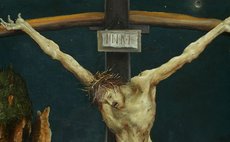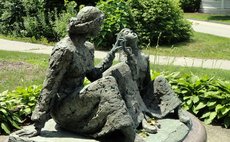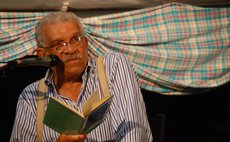Has the Caribbean come of age?
In his prison in Germany, during World War II, Dietrich Bonhoeffer, a Protestant theologian, wrote the celebrated words, "The world has come of age." Many would most likely say that is was a very unfortunate time to make that statement. To speak of maturity is to speak of a sense of responsibility and nobility. Certainly, some of the nations engaged in the greatest display of bloodshed and destruction in history lacked the awareness of human dignity, the magnanimity and the spirit of self-restraint that should be a characteristic of a people who have come of age.
Be that as it may, coming of age is a valid aspiration in the process of human development. It denotes a sense of accomplishment, a sense of maturity, which is the hallmark of human civilization. It is a goal toward which the human spirit directs the lives of all men and women and nations.
During the past several decades, enlightened Caribbean leaders have arrived at the conclusion that, to take their rightful place in the community of nations, the various relatively small entities of the English-speaking Caribbean should move on to a bond of relationship, such as a federation or a confederation. At certain moments the call and inspiration have been so decisive that we thought that we were on the verge of great things. However, nothing happened.
In 1990, the West Indian Commission, under the theme, 'LET ALL IDEAS CONTEND', presented some hope. Distinguished West Indians, such as Sir Shridath Ramphal, Dr. Vaughan Lewis, Professor Rex Nettleford, Mr. William Demas, Mr. Phillip Nassief of Dominica, Dame Nita Barrow and other illustrious and progressive West Indians participated. However, as usual, a ray of hope was presented to waiting West Indians, and, like a woman giving birth to a still-born baby, hopes were dashed.
What then is the problem? Why can we not move on? What element do we need to energize us? Mr. William Demas sees political union in the Caribbean not merely as a fascinating enterprise. The issue, he says, is survival. Why then can we not grab at it with all our might? Are we waiting for us to be on our death-bed or to be living in the valley of the shadow of death?
We, West Indians, are saddled with an historical burden. It hangs on our shoulders like an albatross. It is an appendage which we cannot seem to shake off. We lack the will to do it. We are apparently in a state of helplessness. We were born in dependence. We remain in a state of dependence.
We, West Indians, are an uprooted people. We have lost our bearings. We find it had to establish new roots. We want to develop ourselves; we want to move on. But we have no studied policy, no strategy. There is disillusionment. We lack a sense of purpose. We lack initiative. We are not able to solve our problems. We rely on the rest of the world to get us out of the mire in which we find ourselves. We place our hope in them, looking up to them as "saviours". But far from settling the issue, they merely perpetuate and complicate our problems.
A major problem for us is our very concept of development. We are often dazzled by what is grandiose and spectacular. Why can we not carve our own destiny? True, we live in a globalize world. We cannot live in splendid isolation. But why can we not decide for ourselves what is suitable for us? Why do we have to imitate slavishly the ideals of others?
Several decades ago, the Trinidadian author, V.S. Naipaul, described West Indians as "mimic men". A Trinidadian calypsonian has characterized them as "copycats". Do we still embrace this caricature of West Indian identity? Or are we willing to eradicate it and consign it to the distant past?
Do we, Caribbean people, have a clear idea of what we want? Or are we willing to depend on others to dictate to us as in the past? We speak of national pride. Do we dare to assert ourselves to the extent that we can reject what appears to diminish our sense of national pride?
Many years ago, at a lecture in St. Gerard's Hall, Roseau, Rev. Dr. Philip Potter of Dominica told this interesting story. Representatives from all over the world had gone to a meeting in the United Kingdom ostensibly to speak and make requests on behalf of their countries. All the representatives had a clear idea of what they wanted. When, however, the West Indian representative presented himself, instead of making requests for his country and stating with clarity his region's position on certain world matters, all he said was, "I only came along with others, my Lord."
Needless to say, he left home empty-handed and returned home empty-handed. He asked for nothing. He obtained nothing. But more than that, he lost his self-respect and that of the people whom he represented.
Some years ago, at a time when there was turmoil in a certain island-state in the Caribbean, there was pressure brought to bear on the Prime Minister to resign. It was alleged that a certain expatriate gentleman informed the Prime Minister that he had two bullets. If he resigned, one was for the Prime Minister and the other for himself! This kind of society, which we appear to be nurturing in the Caribbean, may be described as the new colonialism. The first was by imposition. The second is by invitation.




